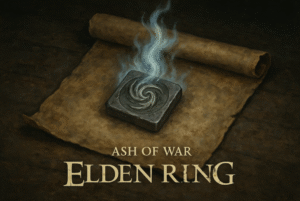From the moment players first awaken as the Tarnished in Elden Ring, they are drawn toward a glowing, ethereal force known as Grace. This guiding light is more than just a narrative device—it shapes exploration, influences progression, and reveals FromSoftware’s unique approach to open-world game design. For new and experienced players alike, understanding how Grace functions can greatly improve your journey through the Lands Between.
What Is Grace in Elden Ring?
Grace is the in-game manifestation of the Greater Will’s divine guidance, visually represented by glowing streams that direct players toward major objectives. These beams can be seen emanating from Sites of Grace—rest points that serve the same purpose as bonfires in Dark Souls. When you rest at a Site of Grace, you can level up, manage Elden Ring Items, pass time, and perform other critical actions that prepare you for the trials ahead.
But Grace isn’t just about healing and saving progress. Its directional guidance subtly pushes players toward key story beats while still allowing freedom to roam. Unlike typical quest markers in other RPGs, Grace doesn’t overwhelm the screen or dictate your next move. It simply nudges you, trusting the player to decide whether to follow its suggestion or carve their own path.
How Grace Affects Exploration
One of the most intriguing aspects of Grace is how it enhances exploration. In a game where secrets lie behind every cliff, ruin, and dungeon entrance, the gentle guidance of Grace gives just enough direction without ruining the mystery.
Early in the game, for instance, Grace leads you toward Stormveil Castle. But veering off the path may uncover useful Elden Ring Items like upgrade materials, talismans, or Spirit Ashes that could make the encounter significantly easier. In this way, Grace indirectly encourages exploration by setting goals without enforcing strict linearity.
Additionally, some Sites of Grace only appear after you’ve explored a particular region or defeated a boss. These hidden checkpoints reward players who venture into remote corners of the world and make future fast travel more efficient. Understanding how and where Grace manifests can dramatically improve your movement and planning.
Combat Preparation and Grace
Grace points also play a pivotal role in preparing for combat. When you rest at a Site of Grace, you can reorganize your equipment, equip Ashes of War, or swap out flasks. Before tackling difficult zones or bosses, it’s a good idea to review your inventory and make use of powerful Elden Ring Items you may have gathered during exploration.
For those looking to optimize their build or level up quickly, many players choose to buy Elden Ring Runes from third-party marketplaces to get a head start. While controversial among purists, this method has become a practical choice for players who want to experiment with different builds or catch up with friends in co-op.
Regardless of how you obtain them, having enough runes at a Grace point gives you the opportunity to level up, fine-tune your stats, and increase your odds of surviving the next encounter.
Narrative Implications of Grace
Beyond mechanics, Grace plays a narrative role in Elden Ring. It is a constant reminder of the Tarnished’s divine purpose—to seek the Elden Ring and become Elden Lord. Characters often reference the presence or absence of Grace as a measure of favor or exile. When an NPC mentions that they have “lost the guidance of Grace,” it usually signifies their fall from the Greater Will’s favor, often hinting at deeper storylines.
This interplay between lore and gameplay adds emotional weight to otherwise mechanical checkpoints. It’s not just about saving your progress—it’s about staying on the path of destiny or deliberately straying from it.
Grace is one of the most elegant systems in Elden Ring. It doesn’t yell instructions, but rather whispers possibilities. It doesn’t restrict freedom, but encourages smart decision-making. Whether you’re using it to follow the main path, hunt for rare Elden Ring Items, or plan your next stat upgrade with buy Elden Ring Runes, Grace is a vital part of what makes the game so immersive.
Understanding how Grace influences your journey will not only make you a better player but also deepen your appreciation for the game’s layered design. So next time you rest at a Site of Grace, take a moment to look at the path ahead—and maybe, the path less traveled too.




